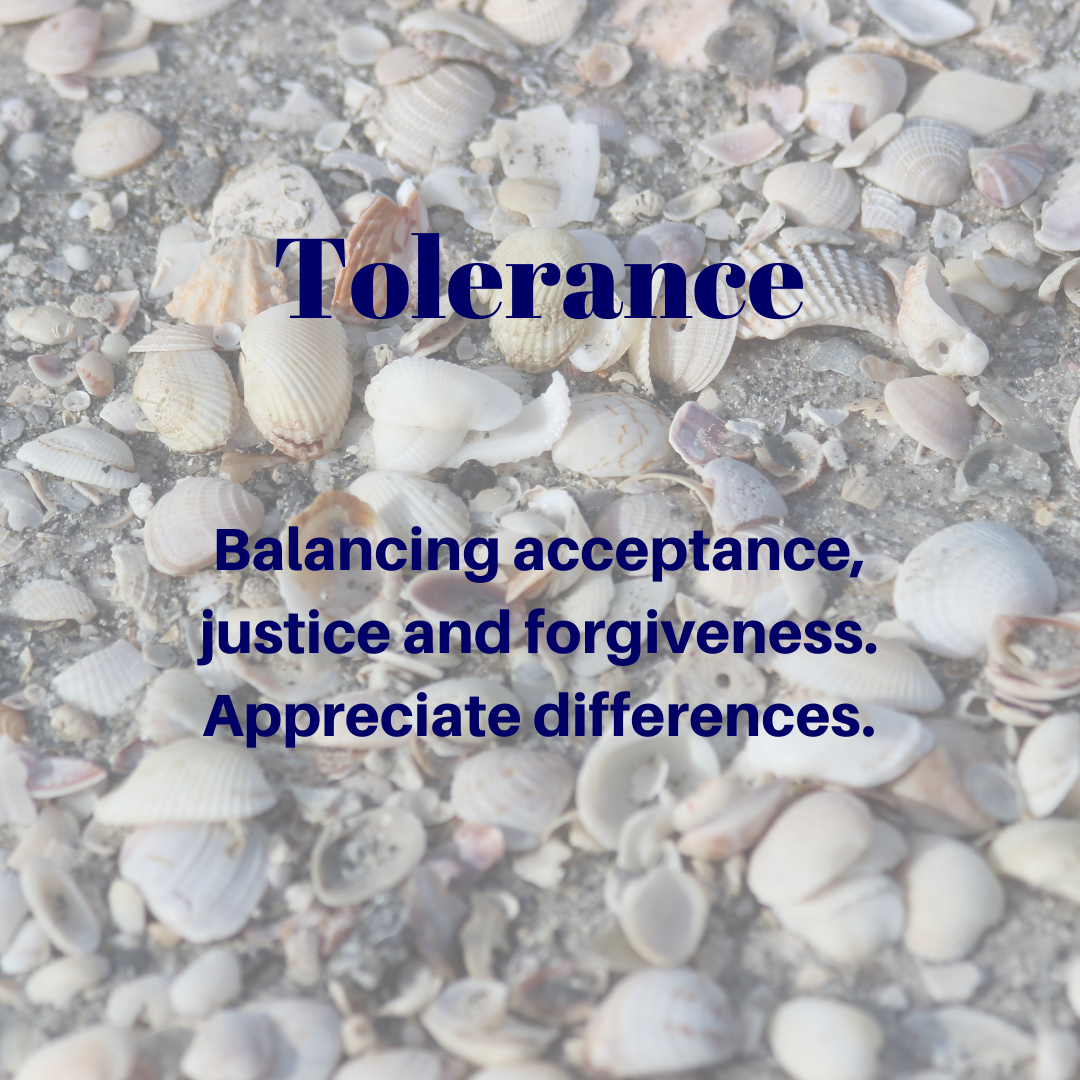
Understanding
Description

Understanding is the virtue that invites us to truly perceive both ideas and emotions with clarity and depth. It calls us to go beyond surface-level judgments, seeking the full truth in every situation. When we practice understanding, we are present with compassion, truly listening to others and embracing their perspectives. This mindfulness helps us discern what matters most, allowing us to be patient and empathetic as we seek to comprehend the nuances of any given moment.
Understanding requires us to step into another person’s shoes, let go of our assumptions, and strive to forgive with a heart open to seeing the whole picture. We value knowledge and use our minds to explore reality, allowing us to make wise decisions and support others in their personal growth. This virtue helps build stronger connections and nurtures peace as we appreciate the diversity of thoughts, feelings, and experiences that shape our world. Through understanding, we gain insight and foster a deeper connection with others and the world we share.
Affirmations for Understanding
1. I choose to listen fully before forming my opinion.
This encourages active listening, helping to understand others’ perspectives without rushing to judgment.
2. I seek to see the world through another’s eyes.
This practice fosters empathy and helps you step into another person’s shoes, enhancing your ability to connect with their emotions and experiences.
3. I remain open to new ideas and perspectives.
Keeping an open mind allows you to consider viewpoints different from your own, expanding your understanding of the world.
4. I acknowledge that I do not know everything.
Humility creates space for learning, enabling a deeper understanding by admitting our limitations.
5. I choose to ask questions when I don’t understand.
Seeking clarification ensures that you are not making assumptions and helps uncover the full truth in conversations.
strive to forgive others, knowing that understanding leads to peace 6. I will approach others with compassion, not judgment.
This encourages kindness and patience, creating an environment where understanding can flourish naturally.
7. I take time to reflect on what others are communicating.
Pausing for reflection allows for deeper processing of what someone is saying, improving your comprehension and response.
8. I recognize that everyone has their own journey and struggles.
This affirms your acceptance of each person’s unique experiences, helping you understand them without imposing your own perspective.
9. I embrace change as a natural part of life.
Forgiveness becomes easier when you understand the reasons behind someone’s actions, allowing for reconciliation and harmony.
10. I am patient with myself and others in the process of learning.
Patience allows for grace and understanding in relationships, giving everyone the space to grow and improve over time.
Quotes
“O Divine Master, grant that I may not so much seek to be understood as to understand.” — St. Francis of Assisi
“Everything that I understand, I understand only because I love.” — Leo Tolstoy
“Listen with ears of tolerance! See through the eyes of compassion! Speak with the language of love!” — Rumi
Understanding In Family Life
Understanding is the foundation for strong, harmonious relationships between parents and children in family life. It involves listening deeply to one another, not just to the words being spoken but to the feelings and needs behind those words. When parents practice understanding, they show patience and empathy, seeking to truly grasp their child’s thoughts, emotions, and experiences without jumping to conclusions or judgments. This helps children feel seen, valued, and respected, fostering a safe environment for open communication.
For children, understanding means learning to recognize that others have different perspectives, needs, and feelings. It encourages them to practice empathy by considering how their actions might affect their siblings or parents. In a family, when each member strives to understand the other, conflicts are reduced, and cooperation grows. It nurtures a sense of trust and compassion, where everyone feels heard and supported.
Understanding family life requires parents and children to be present, patient, and willing to embrace each other’s uniqueness. It builds an atmosphere where love and respect thrive and where challenges are met with grace and mutual support. Through understanding, families create deeper connections, resolving differences with kindness and growing stronger together.
Balancing Understanding
Understanding is a powerful virtue that fosters empathy, patience, and connection in relationships. However, when underdeveloped, it may lead to misunderstandings, impatience, or a lack of communication. On the other hand, if overdeveloped, it could result in losing personal boundaries or becoming overly accommodating. To keep understanding balanced, the following virtues provide essential support:
-
-
-
Discernment
Discernment helps us wisely evaluate situations, ensuring that our understanding leads to sound judgments without being clouded by excessive empathy. -
Assertiveness
Assertiveness ensures that while we strive to understand others, we also express our own needs and boundaries clearly, preventing misunderstanding from compromising our well-being. -
Compassion
Compassion deepens our understanding by helping us care for others, but also reminds us to be gentle with ourselves when extending understanding becomes emotionally taxing. -
Clarity
Clarity ensures that our understanding is based on accurate communication and not assumptions, helping us articulate our thoughts with precision. -
Patience
Patience helps us take the time needed to fully comprehend another’s perspective, preventing frustration when immediate understanding is not reached. -
Self-Respect
Self-respect balances understanding by reminding us that while it’s important to understand others, we must also honor our own values and experiences. -
Forgiveness
Forgiveness helps release any grudges when misunderstandings occur, allowing understanding to be restored and relationships to heal. -
Humility
Humility allows us to recognize that we don’t have all the answers, staying open to learning and growing in our understanding of others. -
Resilience
Resilience helps us maintain understanding even in difficult circumstances, ensuring we remain steady and strong without becoming overwhelmed. -
Wisdom
Wisdom provides the insight needed to know when to offer understanding and when to step back, helping us maintain healthy relationships without overextending.
-
-
Understanding is a virtue that can be both empowering and transformative when balanced with these supporting virtues. By developing discernment, assertiveness, compassion, and others, we ensure that our understanding remains clear, healthy, and nurturing to ourselves and those around us. These virtues work together to create a well-rounded approach to fostering deeper, more meaningful connections.
Joe is a husband, father, grandfather, author, speaker, educator, course creator, and parent/family coach.
He helps parents develop unity, find clarity, communicate, and develop consistency in their parenting with the Four C’s of Successful Families. You can find his work on social media.
In addition, the Four C’s newsletter is enjoyed by many as it encourages parents to self-care, build their relationships with their partners, and raise their children.
And he loves to golf!




